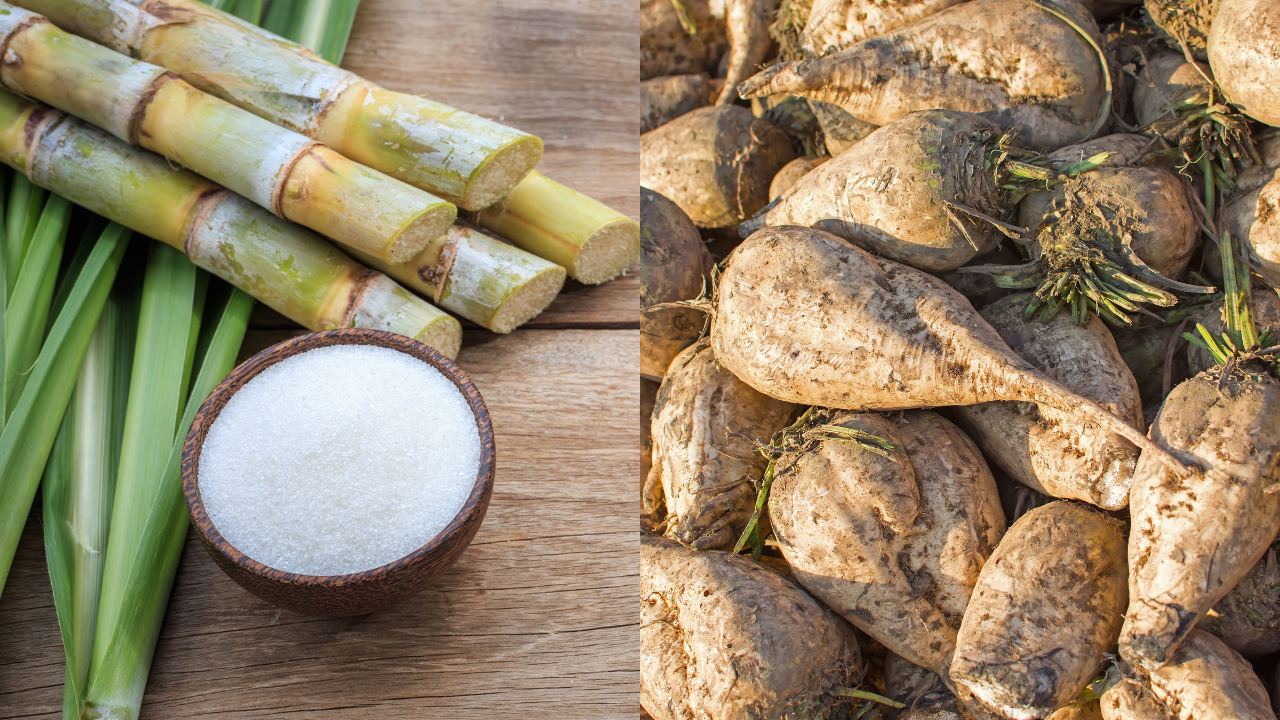Food companies consider beet sugar vs cane sugar when choosing sweeteners for different food products.
Food companies consider beet sugar vs cane sugar when choosing sweeteners for different food products.
Blog Article
A Detailed Take A Look At the Conveniences and Uses of Beet Sugar Vs Cane Sugar for Sweetening Options
In the world of sweetening, both beet sugar and cane sugar deal distinctive benefits and culinary roles, albeit with comparable dietary accounts. While beet sugar flaunts a neutral taste perfect for different recipes, cane sugar improves recipes with refined sugar undertones.
Beginnings and Handling Techniques of Beet Sugar and Cane Sugar
Beet sugar and cane sugar, two predominant sweeteners, stem from really unique plants and go through different handling methods. Beet sugar is removed from the sugar beet, a root vegetable, mainly grown in cooler climates. The processing includes slicing the beetroots to extract the juice, which is after that detoxified and taken shape into sugar. This technique is fairly effective, enabling sugar recovery from several stages of the process.
On the other hand, cane sugar comes from the sugarcane plant, an exotic yard. Its processing begins with gathering the cane, squashing it to acquire the juice, and after that steaming this fluid to form sugar crystals.
Nutritional Contrast: Beet Sugar Versus Cane Sugar

When contrasting the dietary web content of beet sugar and cane sugar, it ends up being obvious that both types give a comparable energy worth. Each delivers about 4 calories per gram, mostly as sucrose, which is a basic carbohydrate. This similarity includes their lack of crucial nutrients; neither kind of sugar consists of considerable quantities of vitamins or minerals. Both beet and cane sugar are 99.9% pure sucrose, making them practically the same in terms of calorie content and dietary account.
Nonetheless, small differences might develop from the minimal trace aspects that remain after handling, though these are as well minor to effect overall wellness. Cane sugar can retain traces of molasses, depending on the level of refining, which may include tiny amounts of calcium, iron, and potassium. Beet sugar, on the various other hand, normally goes through a procedure that eliminates these micronutrient more completely, causing an also purer type of sucrose.
Culinary Makes Use Of and Taste Profiles
Despite their nutritional similarities, beet sugar and cane sugar diverge notably in their culinary applications and taste subtleties. Beet sugar, obtained from sugar beetroots, normally has an extremely neutral preference, making it a favored option in cooking where it perfectly integrates without changing the taste account of various other ingredients.
Cooks and home chefs alike pick sugars based upon these qualities. While Check This Out both sugars operate likewise in regards to sweet taste and physical homes, the minor flavor distinction can affect the end result of a recipe dramatically, guiding the option between beet and cane sugar based on the preferred end result in culinary productions.
Wellness Effects of Consuming Beet and Cane Sugars
Although beet sugar and cane sugar are typically utilized reciprocally in food preparation and baking, their health ramifications can vary subtly as a result of their distinctive processing techniques. Both sugars provide concerning the same quantity of calories and carbohydrates per teaspoon, essentially offering similar power payments with no intrinsic nutritional advantages. However, the refining process for each sugar can modify the existence of trace minerals and compounds, although these variants are normally very little and not considerable sufficient to impact one's wellness meaningfully.
The primary health problem with both kinds of sugar pertains to their contribution to too much calorie consumption, potentially bring about weight gain, and involved diseases like type 2 diabetes and heart problem when eaten in large quantities. No matter of the source, small amounts is key in taking in beet or cane sugars. Health and wellness professionals usually recommend restricting included sugars in any type to preserve optimum wellness end results.
Environmental Effect and Sustainability of Sugar Production
Conversely, sugar beet handling has a tendency to produce large amounts of pulp waste, which can be repurposed as animal feed or exchanged bioenergy, thereby reducing some environmental effects (beet sugar vs cane sugar). Inevitably, the sustainability of sugar manufacturing rests on taking on more green farming strategies and waste management practices to minimize the environmental impact of both sugar types

Final Thought
Finally, both beet and cane sugars use important sweetening alternatives, each with distinct advantages and downsides. While they are nutritionally comparable, their growing impacts and flavor accounts differ considerably. Beet sugar is significant for its sustainability and neutral preference, whereas cane sugar is treasured for its abundant taste. Customers ought to think about these variables, together with the environmental implications of sugar production, to make enlightened options regarding sugar usage that align with cooking needs and moral worths.
Report this page